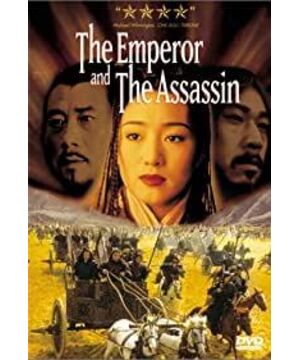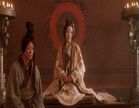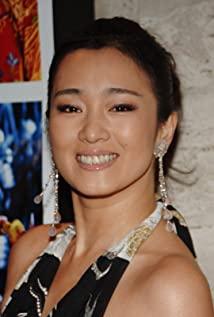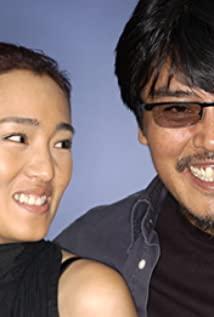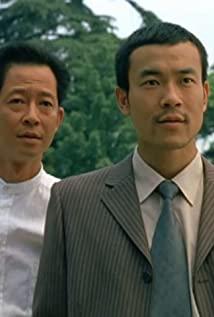I watched the Japanese version of 2 hours and 48 minutes, titled "The Assassination of Qin Shi Huang".
What does the show want to express?
China’s core political and historical values for the past two thousand years is the Great Unification, but the realization of the Great Unification will inevitably experience bloody and violent wars, especially the Qin Emperor’s first Great Unification. The War of Extermination is particularly brutal and violent. It is possible to view this matter from a historical perspective (taking violent death as a unified price), and it is almost certain that Emperor Qin himself is regarded as the general representative of violence and crime.
(1) The core issue discussed in the play is whether the great unification will bring peace or violent killing, and should Qin be assassinated?
Taking China’s two thousand years of history, the great unification will certainly bring peace; but as far as the Qin Dynasty is concerned, the implementation of the great unification has killed too many people. After the realization of the great unification, the political and historical inertia of Qin made Qin's administration harsh. Violence, excessive decay of the people's power, and failure to fulfill the peace promised by the great unification. What are the reasons for all this? The play thus makes an anatomy of the personality of King Qin, analyzing his childhood living environment, family relations, social relations and other aspects. Its methodology seems to be the way of psychological history, that is, the belief that people are formed in their personalities. The encounters in the decisive period, especially the early childhood experiences, his experience of psychological formation and political socialization in childhood, led to all the aberrations in his adult personality.
King Qin was humiliated as a hostage in Zhao, which made him full of revenge in the War of Destroying Zhao, and he showed no mercy to the people of Zhao. But the years of being a hostage were not only painful, but also Zhao Nu's mutual affection and tenderness, so later he could bear all the people in the world but Zhao Nu, but there was a warm heart hidden under the violent appearance. Yan Dan was also a host of Zhao, but did not pity for the same disease. One was because of his weakness and lack of friendship, and the other was that he was an enemy king and would eventually destroy his country. Therefore, the king of Qin only treated Yan Dan in general. Acquaintance.
King Qin's deformed family added three points of violence and insidiousness to his family, and his family ugliness leaked out, and he had to kill the rumors, even his biological father was not spared. The large-scale affiliation has forced away his beloved generals and thrown him into the enemy's camp, making King Qin even more lonely. His biological mother was expelled from Xianyang because of his family ugliness. His lover was dissatisfied with his killing in Zhao State and left. Ai Jiang is gone now. He became a completely lonely man. His loneliness made him no longer believe in anyone. The distorted mentality intensified.
The irritability of the King Qin made the courtiers only weird, lest their anger be burned to them, and as a result, the Qin Dynasty became an absolute autocratic society, and the courtiers lost their ability to restrain the monarch. After the reunification, the Emperor Qin did what he wanted, abused the power of the people, failed to cultivate and regenerate the world, and the promised peace could not be realized.
(2) Since King Qin is such a person, should he assassinate Qin?
The assassination of Qin in history was Yan Dan's vain attempt to prevent or delay the Qin's attack on Yan by assassinating King Qin. This is a typical political naive phenomenon. The play also shows this. Yan Dan once wanted to kill King Qin when Qin was hostage, but King Qin revealed his naivety on the spot, pointing out that the assassination of King Qin had no effect, and the successor King Qin would continue to implement the great cause of unification.
Later, the play proposed a conspiracy theory explanation for Assassin Qin. King Qin was worried that he could not find an excuse for fighting against Yan. Zhao Nv asked Ying to seduce Yan Dan to assassinate Qin personally, so as to give Qin a pretext for war.
However, the play did not stop the understanding of Ci Qin at the level of conspiracy theory, and went further. Zhao Nv saw the tyranny of the Qin army, and Zhao Guo was full of grief, but Yan Dan could not save her death, so she suspected that the ideal society after the unification promised by the King Qin was just a deceit, and she was convinced that Yan Dan was not worthy of rescue at all, so she and Jing Ke Agreed to assassinate Qin. The assassination of Qin at this time was Zhao Nu's disappointment with King Qin, her contempt for Yan Dan, and her expression of Zhao Nu's concern for the people and condemnation of the violent war. But why did she assassinate Qin as an envoy of the State of Yan?
As far as Jing Ke himself was concerned, he retreated from the arena after experiencing the tragedy of the blacksmith's daughter. He was determined not to kill anyone again, nor to kill King Qin for anyone (especially Yan Dan). But because of her disappointment with the King of Qin, Zhao Nv empathized and fell in love with Jing Ke, making Jing Ke sympathize with Zhao Nv, admire Zhao Nv's love for the world, and willing to sacrifice her life to stab Qin King for her lover. Yan Dan has been entangled with Jing Ke again, asking Jing Ke to fulfill his naive political aspirations for him. At this time, Jing Ke took advantage of this opportunity to become an envoy of the State of Yan to assassinate Qin in Xianyang. Assassinating Qin is now only between Zhao Nu and King Qin, Jing Ke acted bravely, and Yan Dan was just a boring foil.
Zhao Nu is the representative of the people of the world. She speaks on behalf of the people and makes judgments from the people's standpoint. Jing Ke assassinated Qin for her, that is, assassinating Qin for the people.
In this way, the tragic significance of Jing Ke's assassination of King Qin has not been deconstructed, but has been strengthened. Jing Ke no longer assassinate Qin for the private of Yandanyan, but for the sake of the public. The assassination of Qin was not to prevent Qin from unifying the world, but to punish King Qin for the crimes committed against the people.
(3) The historical outlook of the play
The Seven Heroes of the Warring States Period is not a nation-state, but a feudal vassal state, and its citizens cannot have the national consciousness of modern people. In the play, Zhao people face the country’s extinction, ordering children to jump off the building or jumping off the building with children in their arms, seems to express the spirit of death without surrender in battle, but Confucianism did not become the mainstream value in any country at that time, and the festival can only be The aristocratic class is for the purpose of protecting the interests of its own class, and it is unlikely to be derived from the ideal of an ordinary civilian to defend the country. Zhao's love for the people and the motherland is obviously the value concept of modern people forcibly substituting into the ancients, and her anti-war must also be the anti-war thinking in modern people’s thinking, that is, modern nation-states should coexist peacefully. Let this thinking go. It is obviously not true to the ancient feudal states.
However, literary works are not rational historical studies, and they are not responsible for showing the true history, but only provide an aesthetic experience of history. There is a certain historical view in this aesthetic feeling. The play must have realized at first that the historical incident of King Jingke assassinating Qin was shrouded in a shadow of nihilism (because Yandan assassinating Qin had no meaning at all). Therefore, the play tried to re-endow meaning to Assassin from the standpoint of the common people. Its basic view of history is the modern view of civilian history.
(4) The aesthetic expression of the play
The opening captions and the staff table are very solemn, but without losing the elegant beauty, it feels bright. When the strokes of each character encounter a long horizontal as the main pen, a stroke in the middle of the character, or a vertical as the main pen, they are crazy exaggerated as a sword force, as if a sword splits the character from it, expressing a kind of Kendo is simple and powerful without losing its beauty. This kind of kendo was later expressed positively when Jing Ke and Yan Dan's sects competed. Every move was powerful and deadly. There was no such exaggeration as the current martial arts drama. At this time, simplicity is beauty.
Aesthetics is to express ideas through sensibility, which can communicate sensibility and reason, so that people can get a certain kind of common emotion. Changxinhou’s palace section, the empty and majestic Xianyang Palace, makes people feel solemn and solemn. The small group of people from Changxinhou running around in it can’t help but make people feel sad, like a white mouse lost in a maze. , This empty and solemn palace expresses King Qin's ruthlessness.
Finally, I met Jing Ke in the One Hall of the Return of the Four Seas. The three-hundred vigor, the towering throne, and the spacious space in the hall all expressed the ambition of King Qin to conquer the world and the insignificance of Jing Ke. And Jing Ke will use this psychological contrast between the sublime, the great and the insignificant as a means to approach King Qin. Qin Wuyang was driven out of the temple and the chance of assassination was lost half of the time. Jing Ke wanted to use his humbleness to make up for this loss. . But King Qin knew the purpose of Yanshi for a long time, so all Jing Ke's performances seemed to the condescending King Qin to be acting. Although King Qin seemed to be in control of everything, he was embarrassed for a moment when he saw Tuqiong Dagger; and when he finally killed Jing Ke, Jing Ke was calm and calm, but King Qin was panicked. Jing Ke looked like a victor, and it seemed that King Qin's victory was insignificant. This series of contrasts between greatness and insignificance shows the constant change of value: King Qin's grand plan to dominate the world is hoped that no one can stop it, but he is determined to be alone for a lifetime without sympathy; Jing Ke's assassination failed, and his body was destroyed. Give everything for the one you love and die for what you want, and pass the letter for your friends to get what you want, and die without regrets.
View more about The Emperor and the Assassin reviews


